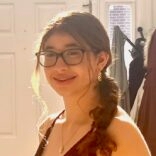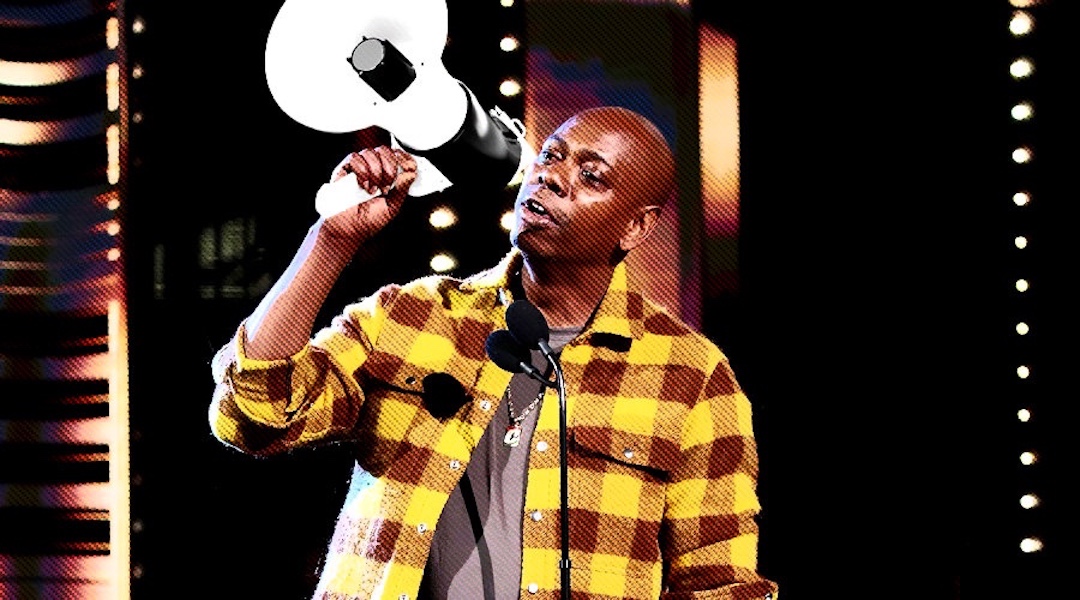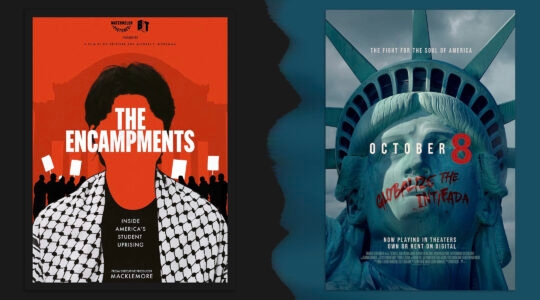(JTA) — I don’t find Dave Chapelle’s “Saturday Night Live” monologue funny, unlike my classmates who draw inspiration from him.
About a year ago, in my eighth-grade English class, I was listening to my classmates talk about Holocaust denial. Some of them were joking, sure, but that didn’t make it any better.
We’d been reading “Maus,” Art Speigelman’s autobiographical graphic novel about the Holocaust, whose characters are depicted as mice. Because of this, people began saying how it was fictitious. And then, it devolved into how the Holocaust didn’t happen. I am 50% of the Jewish population in my grade at my school in Nashville; the other 50% sat a few desks away. We were both frozen solid. We couldn’t move.
Once I collected my bearings, all I could think was, “It’s not their pain to joke about.” And it’s not. I might joke with another Jewish student about silly Jewish stereotypes like bagels and lox or tell stupid jokes like “Two Jews walk into a synagogue…,” but when I hear someone else make a joke about my heritage, I am offended. I do understand that this is a bit of a double standard, but why should they get to joke about my ancestors? It’s certainly not their own blood family that died in Auschwitz and ghettos across Europe.
Just a few days ago, a non-Jewish classmate of mine told me a pickup line centered in the Holocaust. Sometimes, I have the courage to say something back, but not always. Sometimes, I’m scared of the social repercussions. When I don’t reply, I feel so guilty; I feel like I’m dishonoring the 6 million who died in the Holocaust. I don’t want to be a representative of my religion, but all Jews were born into that role and it is up to us whether we choose to comply.
Dave Chappelle has the right to joke about how there’s “a lot of Jews” in Hollywood. But, because he is not part of the Jewish community, he should have to face the consequences of joking about my community’s pain and hardships. When major broadcasters like NBC put people such as Chappelle on air, they are giving permission for these offenses to continue. It may or may not be intentional, but the effects of the antisemitic rhetoric are the same. By allowing this language on the basis of comedy, we are spreading an attitude of antisemitism across the globe and that attitude follows all Jews, from my parents at their places of work, to me in my classroom.
For Chappelle, that monologue was a moment. For me and my community, it’s our lives. I’ve experienced this all throughout my childhood. The Nashville JCC, where my mom worked, got bomb threats in 2017. I still recall how terrified I was as a 10-year-old to think that my mom was going to get killed at work.
There are microaggressions that have links to this rhetoric, too. Growing up, my teachers would somehow incorporate Jesus into a curriculum where it in no way belonged. For years, I even took their own religious opinions as fact. And why shouldn’t I have? Back then, what my teachers taught was the truth. There wasn’t much more to it. I didn’t know better, and my educators used their Christianity-based opinions in what was supposed to be a religion-free curriculum.
The outrage that I and so many others feel about Chappelle’s monologue is not about the words themselves. It’s about the things they give cover for. When I hear him making light of basketball star Kyrie Irving’s sharing of a movie denying the Holocaust, I hear him giving permission for the vandal who painted a swastika on a college campus frat house not far from my home and the kids in my class to deny the Holocaust while the teacher just sat there, unbothered. Like Kanye West’s threat to go “death con 3” on my people, or Rep. Marjorie Taylor Greene’s antisemitic conspiracy theories, it doesn’t just disturb me, it haunts me. It follows me everywhere: from my dinner table to my social media feed to my school.
I joke with my Jewish friends about our secret Jewish space lasers, but it’s only trying to cope. We cope with the pain of knowing the horrors our ancestors endured and just how quickly we could approach another tragedy. These events build and build in severity until their climax.
When it was announced that Chappelle would be hosting “SNL,” there reportedly was outrage from the writers and rumors that the cast might boycott because of his previous homophobic and transphobic remarks. They didn’t. Why the silence? It’s awful to see “SNL,” a show watched by millions, give a platform to someone making fun of my history and my daily struggle.
It’s time to move on from targeting an entire people for laughs and attention. It’s not funny. It never was.
JTA has documented Jewish history in real-time for over a century. Keep our journalism strong by joining us in supporting independent, award-winning reporting.







